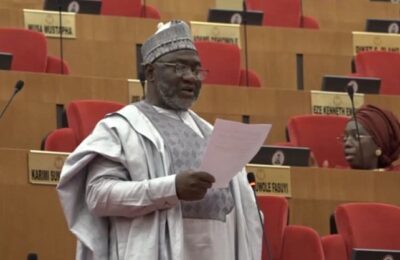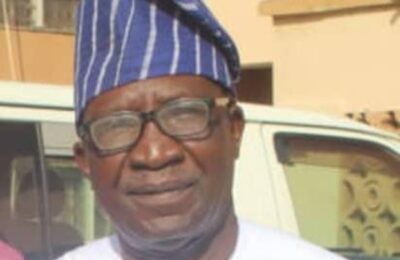Every culture draws strength from its ancestral roots—timeless traditions, sacred wisdom, and spiritual resilience passed down through generations. For the Igala nation, those roots run deep, stretching back to an era where leadership or traditional administrative system was not just about governance but about divine alignment. Today, as we reflect on our political decline from throne to knees, one truth shines through: the lost glory of the Igala people can only be reclaimed through the sacred and secret faith and wisdom of our forefathers.
Our ancestors were traditional worshippers. They may not have held degrees or spoken the language of the elite, but they were custodians of a deep, intuitive knowledge—one that could sense the nearness of bad omens or good fortune and divine favour. Their discernment didn’t come from books; it came from communion with the land, the gods, one another and most importantly Ojo Chamachala (God Almighty). They understood that real power is spiritual before it is political.
Some of them were so deeply rooted in wisdom that even today’s educated elites would benefit from sitting at their feet to learn. They led with dignity, fought battles not with only weapons or charms, but with words infused with spiritual authority. Their language carried weight because it was anchored in unshakable faith. Like the prophets of old, they spoke realities into existence. This was their strength.
The Bible says, “Now faith is the substance of things hoped for, the evidence of things not seen” (Hebrews 11:1). Our ancestors lived by this truth. Their lives were framed by faith that defied the physical and aligned with the spiritual. Their version of faith was not a theoretical concept—it was a lived reality. Like Abraham, who “by faith sojourned in the land of promise” (Hebrews 11:9), they trusted in the unseen, and that trust became the bedrock of their leadership.
This type of faith is generational. It is inherited, cultivated, and passed down like a sacred fire. Paul writes to Timothy in 2 Timothy 1:5: “When I call to remembrance the unfeigned faith that is in thee, which dwelt first in thy grandmother Lois, and thy mother Eunice; and I am persuaded that in thee also.” This is not merely a Christian inheritance—it is a universal principle. Just as faith passed from Lois to Eunice to Timothy, so too did spiritual insight pass from our Igala forebears to their descendants.
The traditional Igala leader, the Attah, was not merely a political figure. He was a divine custodian, chosen by the gods, sanctified by the elders, and trusted by the people. His authority was not derived from campaigns or slogans but from spiritual validation. Today, we must question: where is that sacred process? Have we traded divine calling for political ambition? Did we respect and follow the advise of the Attah Igala during election?
Our ancestors governed with wisdom anchored in humility and unity. When disputes arose within the community, they resolved them swiftly—no legal drama, no drawn-out conflicts. It was said that if there was a quarrel between two Igala persons, it would be resolved before 5:30 a.m. the next day. Often, reconciliation happened silently. The aggrieved would meet on the road, at the path to the farm or the stream. Words were unnecessary—tears would do the work. A single embrace, a look, a shared silence—these were enough. Can we ever find such days again?
This was the spiritual intelligence of our forebears. They knew how to preserve peace because they valued community over ego. They were guided by a collective spirit, an unwritten covenant of unity. Today, that spirit is missing. Our politics is filled with noise, suspicion, betrayal, and endless litigation. We’ve become strangers to ourselves, and in doing so, we’ve become weak.
In their world, reconciliation was a spiritual act. Leadership was a divine trust. Wisdom was not stored in books, but in hearts and homes, in the memory of old men and the songs of women pounding Oje Uchu (pounded yam) in the evening. They lived their faith daily. They didn’t quote Scripture—they embodied it. That’s why we must go back—not in nostalgia, but in recovery. The Igala proverb says: “A tree that grows tall is rooted in its soil.” We cannot rise without returning to our roots.
Paul wrote, “The foolishness of God is wiser than men” (1 Corinthians 1:25). So it is with the ancient ways. What seems outdated or foolish in modern politics may, in truth, be the very wisdom we need to rebuild. The sacred rituals, the early-morning reconciliations, the tears at the crossroads, the silent strength of women, the prophetic insights of elders—these are not relics of a bygone era. They are blueprints for recovery.
We must not dismiss the “old ways” as irrelevant. What we call “primitive” was in fact prophetic. Our forebears built communities that lasted, families that stayed united, and a political system that honoured both man and the divine. They understood that no structure—political or otherwise—can stand without spiritual foundation.
The Igala people today must rise again, not merely through elections or policies, but through a spiritual renaissance. We must bring back the wisdom that knows when to speak and when to be silent, when to fight and when to reconcile. We must find again the paths that lead not only to farms and streams but to healing and honour.
Let us not lose faith. Let us not be too proud to bend low and drink from the old wells. There is power in the past—not to imprison us, but to guide us. The sacred and secret wisdom of our ancestors is not lost. It is only waiting—for a generation humble enough to seek it, and bold enough to live it.
– Inah Boniface Ocholi writes from Ayah – Igalamela/Odolu LGA, Kogi state.
08152094428 (SMS Only)




